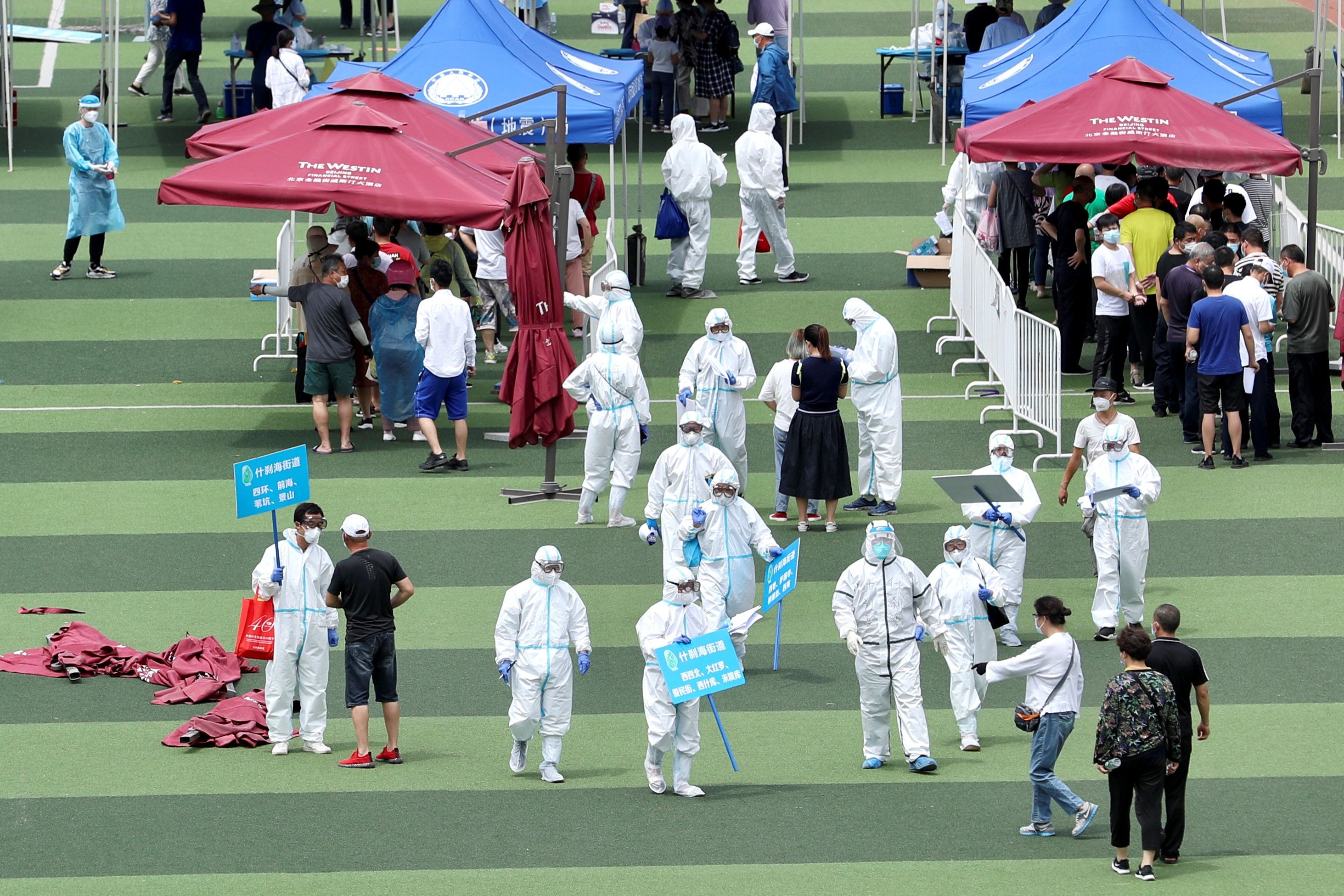What We're Watching: Beijing's COVID clampdown, Nigeria attacks, COVID's cost for women and children
Beijing clamps down to stop second wave: Authorities in Beijing moved swiftly to reimpose strict lockdowns in the Chinese capital after dozens of new COVID-19 cases were linked to a sprawling wholesale food market there that supplies around 90 percent of the city's produce. Officials in charge of the municipality where the market is located were immediately fired from their posts for "failing" to curb the disease's spread. Meanwhile, thousands of residents who visited the market in early June were tracked down by authorities and ordered to self-quarantine for 14 days. The reemergence of new infections in Beijing, a city of 21 million people, highlights the coronavirus' resilience. But Beijing's decisive action – it quickly placed strict restrictions on movement for millions of residents, while also placing them under 24-hour watch by the military – also underscores the ability of an authoritarian regime like China's to swiftly employ extreme measures to squelch contagion. Whether the move works or not will be seen in the coming days.
Nigeria under attack: Nigerians are reeling after Islamist groups carried out three attacks in the country's northeast over the weekend, killing at least 60 people. An Islamic State offshoot claimed responsibility for the onslaught, which included the torching of a truck with 15 people inside it, and a raid on a military base that hosts personnel from a number of international NGO's. These deadly episodes came just days after Boko Haram militants razed a village in northern Nigeria, killing 80 people. The violence reflects a larger surge of jihadist activity in the vast Sahel region in recent years. The UN recently said that since 2016, the combined terrorist-attack casualties in the West African countries of Burkina Faso, Mali and Niger have leapt five-fold. And militants are taking advantage as local governments and security forces are distracted by the fight against COVID-19.
COVID endangers women and children: The direct health risks posed by the novel coronavirus are well known. But less emphasis has been placed on the indirect burdens of the pandemic on already vulnerable populations. The World Health Organization has now warned that because health systems in developing countries have been overwhelmed by COVID-19, many women are at greater risk of dying from complications during pregnancy and childbirth. Lack of access to critical medical care could result in increased infant and child mortality rates, too, the group has said. Even before the pandemic, millions of women in Africa, Asia and Latin America struggled to access safe, affordable, and timely sexual and reproductive healthcare, with 94 percent of all maternal mortalities occurring in low income countries. Maternal and newborn deaths are now expected to skyrocket in remote and poor areas, the WHO says, far outpacing the number of deaths from COVID-19 itself.
